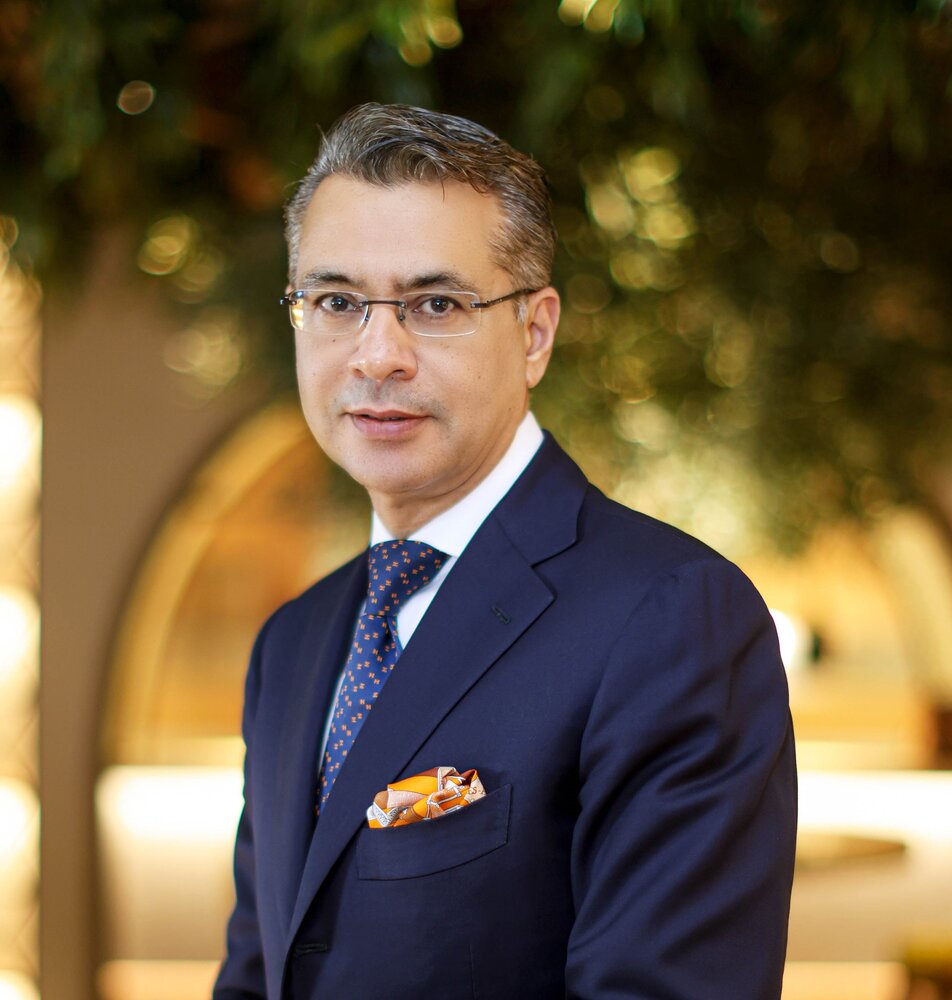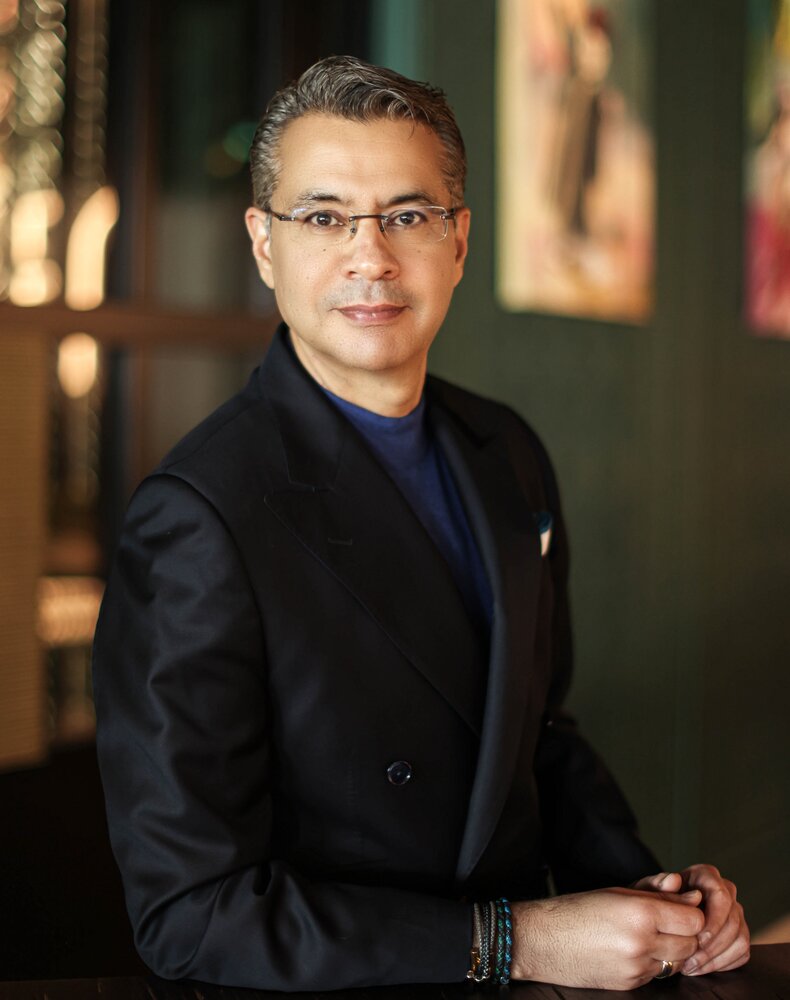Travel industry leaders reveal their career path to the top and the lessons learned along the way
The chief operating officer for Marriott International in the Middle East, Sandeep Walia joined Marriott International in 2005. A seasoned hospitality professional with more than 25 years of industry experience, he holds an Executive MBA from the Kellog School of Management at Northwestern University, a degree in Leadership from Harvard Business School and a post-graduate from the Oberoi Center of Learning and Development. The Oberoi was where it all began, as Connecting Travel found out…
Connecting Travel: What was your first job in travel?
Sandeep Walia: My start in the industry was back in India with Oberoi Hotels & Resorts. I had just finished hotel school and I went to work at the Oberoi in Mumbai, but my love for the industry started during my childhood. My father was in the Air Force, and we use to move every few years and that’s when the travel and the industry bug caught me.
When I graduated and moved to Mumbai, I wanted to be in the front-of-house on reception or in the lobby. My frame of mind was that the more ‘in front’ I was, the better I'm doing at getting noticed. But as destiny would have it, I was assigned to the Butler department, and I thought it was the end of my career. It turned out to be one of the best parts of my career.
The exposure of being a butler is irreplaceable
We used to get a lot of VIPs staying there and we got so close to them as we looked after their expressed and unexpressed wishes. One of my most interesting guests was Michael Jackson. He wanted just one point of contact, so it was almost like a 24-hour job that I enjoyed. One morning, he asked me if I was coming to his concert, and I said, no, I can't afford it. He replied that I didn’t need to afford it because I was going with him in the artist's bus.
My understanding of personalisation started then in terms of how everybody likes the same thing differently. In this industry, we need to personalise things and that personalisation is beyond just name recognition and likes and dislikes. It’s about anticipation and that's what makes the difference.

CT: As a butler, how did you deal with difficult clients?
SW: I would never describe guests as ‘difficult’, but rather as 'different'. And the same guest might have different requirements depending on their purpose of travel. If I'm on business, for example, I might not want a butler around me all day; I might just want a morning coffee and that's it. If I'm with the family on a leisure break, then my butler needs might range from booking sightseeing excursions to dining venues.
There needs to be a certain amount of understanding – and empathy, too. You don't know what a guest's journey has been. It's easier said than done, sitting here now a few years later, and there are times when a butler might get annoyed or upset, but it’s always better to take everything with a pinch of salt and kill people with kindness.
CT: What other advice would you give your 20-something self?
SW: If I were to go back in time, I would do this industry all over again. I truly enjoy what I do. I would not change it for anything. My advice to my younger self would be to talk less and listen more.
As beginners, we often try to demonstrate our knowledge through excessive talking, instead of focusing on listening more attentively
CT: What does a typical day involve in your current job?
SW: No two days are the same. Driving results is always an important focus. We have a ‘balanced scorecard’ to ensure all the metrics are in place. We measure guest engagement scores and the financials, the top and bottom line, and the index, which is more a measurement of how we're doing versus our competition.
Beyond that, my time is split between people across different stakeholder groups: our associates, leaders, owners and guests. It's important to spend hands-on time at our properties, strategic planning with our leaders and working to drive business results.
- How I got here: Mark Willis, global CEO of Fairmont Hotels & Resorts
- How I got here: Tim Cordon, COO of Radisson Hotel Group, Middle East & Africa
- How I got here: Guy Hutchinson, CEO & President of the Rotana Hotel Management Compan [up until 2023]
- How I got here: Jochem-Jan Sleiffer, Hilton president, Middle East, Africa and Turkey – in memoriam
The area I look after has more than 230 open hotels and more than 120 projects in the pipeline. With this portfolio of hotels and resorts, there are bound to challenges and speed bumps along the way, so time during the day is spent on navigating these issues.
Another big component is time spent with the hotel owners, because Marriott is a growth company and we are growing quite drastically, so I spend a lot of my time with either existing owners, owners-to-be or owners that are going to add more properties. This engagement is key.
And most important is time spent on property in the hotels meeting our people, because at end of the day, the Marriott business is a very asset-light model. We don't own anything across the portfolio of hotels other than the 31 brands – and these brands are really brought to life by our people.
CT: Would you advise others to enter the travel industry?
SW: Yes, 100%! I love this business because it caters to my hobbies, too. I love travelling. I love food; so what could be better than being in the business of creating experiences and memories. It brings it all together. I would not trade this career for any other industry.
I think it's a great industry to be in from a future perspective. Globally, the luxury space in 2021 was valued at about US$280 billion; its forecasted value is said to be going to be about US$340 billion. People are moving from product to experiences and that falls directly into what we do.
My daughter's gone to hotel school in Lausanne. My wife worked in hotels. So, we're a bit of a hospitality family now
CT: Does your daughter plan to follow in your footsteps?
SW: Yeah, Diya has grown up with parents in the hotel business, and I think maybe she took to it then, but we did make her train for six months to get a feel for what the work is because it's not as glamorous as one might think. There's a lot of hard work behind it, like in any industry. So, she did the training and was still keen. Now she’s on a four-year programme in EHL, Laussane. She's enjoying it so far – but I would never decide for her what she wants to do, let’s see where her work and destiny takes her.
CT: You mentioned your wife worked in hospitality, too. Is that how you met?
SW: Yes, that's how we met; we were together in hospitality school. Kriti worked through different disciplines, including F&B, Training and Projects, but she left industry when our daughter was born. With our daughter growing, she has kept rediscovering herself ever since. She started a baking business called Cupolicious when we were in Egypt and then took it to Moscow and Germany as we moved around. Now she's cherishing one of her biggest passion points, wildlife photography. So, she travels a lot, even today, as we speak, she's among wildlife somewhere in India. She is also an amazing chef!

CT: Finally, what are the secrets to your success?
SW: From whatever my mentors have taught me, the one thing that has really stayed with me is that a hotelier needs to have the heart of an innkeeper and the brain of an entrepreneur. Our industry started centuries back with inn-keeping. People used to travel from one place to another, without a mobile phone, and when they got tired, they’d look for a place to stay and an innkeeper would give them that – a place to sleep and share a meal and a conversation. It came from a place of genuinely wanting to accommodate people – authentic hospitality. That was the very start of hospitality and having the heart of innkeeper is key. At the same time, we need to be an entrepreneur, thinking about how we would drive rates and grow the business and make sure that we have returns for our owners and the company.
Also, being a lifelong learner is essential. I did my executive MBA a few years back. It was very tough. I had more black hair then! I enrolled with the Kellogg School of Management. I had to go for a week every month in person to one of the campuses in either Hong Kong, Germany or Chicago, which is the hub of Kellogg.
Last but not least is the focus leaders must have on people and finding the balance between being hands-on and empowering teams to do what they need to do. As Mr Marriott would say, look after your people; they will look after your guests and the business and guests will come back. It's all about people.
For more information, visit www.marriott.com

_w=940_h=488_pjpg.jpg?v=1c492915)



_w=640_h=335_pjpg.jpg?v=1c492915)
_w=640_h=335_pjpg.jpg?v=1c492915)
_w=640_h=335_pjpg.jpg?v=1c492915)
_w=640_h=335.png?v=1c492915)